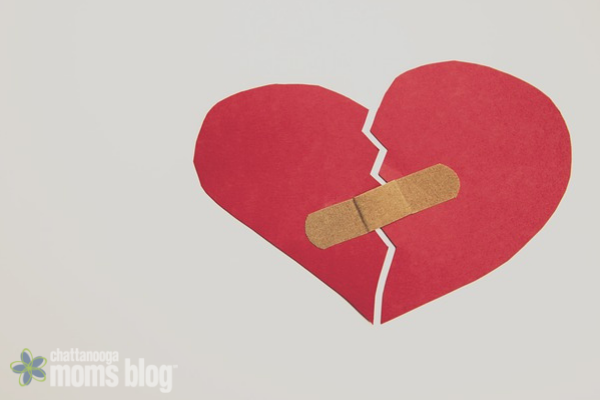
People like to fix other people. You have a mouse problem, health issue, broken toilet, or need date night suggestions? Just ask the human race (on whatever social media platform is most populated) and they’ll help you out. When your chunky two-year-old get his thighs stuck in a shopping cart, strangers will rush to bend the metal rods trapping his rolls and silence the outrageous screaming. There are podcasts, books, blogs (heeyyyy), support groups, medications, meditations, religions, national treaties all created to fix other people — maybe to make them into people we’d like to be around, more suitable beings with which to share a planet, or because we would rather not be uncomfortable by another person’s brokenness.
When we were graduating from college, a friend once remarked to me that there was so much more death, sadness and grief than when we were children and teens. What she really meant was that many are not aware or exposed to these things when they are young and then it hits suddenly when your mom is diagnosed with a life threatening disease and everyone you’ve ever looked up to suddenly seems fragile and mortal. It has been almost ten years since she said that to me and the death around me hasn’t stopped. The grieving and pain of losing loved family members is only ramping up as grandparents, in-laws, and friends have passed away, and those I hold dear age and start to get sick, wrinkled and slow down. The allure of adulthood has vanished as I realize that the pain of grief can become ever-present. It seems more surprising to meet people who aren’t under its hold, than those who are.
And yet, people still try to fix the grief in other people.
“We will carry you through this!” some say, unknowingly comparing grief to a journey with a beginning and ending. The care packages, meals, financial outpourings, thoughts and prayers — these come in well meaning ways and with so much love attached. I know that they do because I have been both a receiver and giver of these expressions, and have felt the struggle to receive such gifts without wondering what the expected response is. Should I be able to cope with this more easily without financial worries? What if I am not done grieving before the meal train shuts off? Will friends slowly drift from my life when this changes me?
I should state that only a most selfish being would demand a quick fix to another person’s grieving. But I can also tell you that holding and supporting a grieving person for a length of time can be exhausting and demands a supernaturally high level of selflessness. It is in our nature to want to shy away from this kind of emotional involvement, one that may require an uncomfortable amount of our own emotional stamina, and to instead try to fix the problem — because we like to fix the uncomfortable, the broken, and get our world back to how it was.
But that’s the issue with grief; it cannot go back.
The last and the longest enemy is death, and it does not give back; it continually takes. It takes sunny days that you had once enjoyed; it takes the house that was filled with another; it takes entire minds for periods of time; it takes a celebration that you’d hoped to share; and it takes a small, squeaky chair in your subconscious and shifts around unexpectedly to remind you of a life once woven into and now cut from your own.
There is still hope to be found in life and in (what I trust is true) life hereafter, but, like a wrong note or scarred skin, death and the subsequent grief cannot be fully fixed by those who remain. We get used to a different normal, but it is not the same normal. To believe that you can or should forget a soul would be more tragic than the loss of one. So, still your typing fingers, close your eager lips; instead, open your ears and your eyes and your heart to those who grieve. Bake pies and casseroles, send the cards and hug their babies tightly.






















I recently read that our best response to another’s grief is simply to bear witness. Witness the grief, the celebration of the life that is missing, the remembrances of joys, and the sudden and/or random onset of debilitating despair. Just to be alongside. That is all.
Comments are closed.